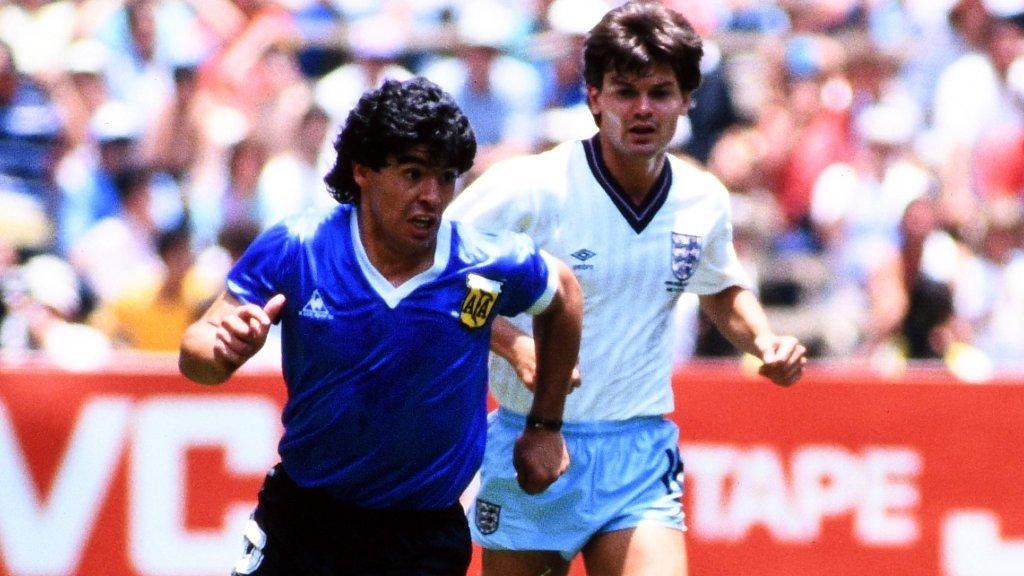Three Lions pioneer sells shirt but retains pride
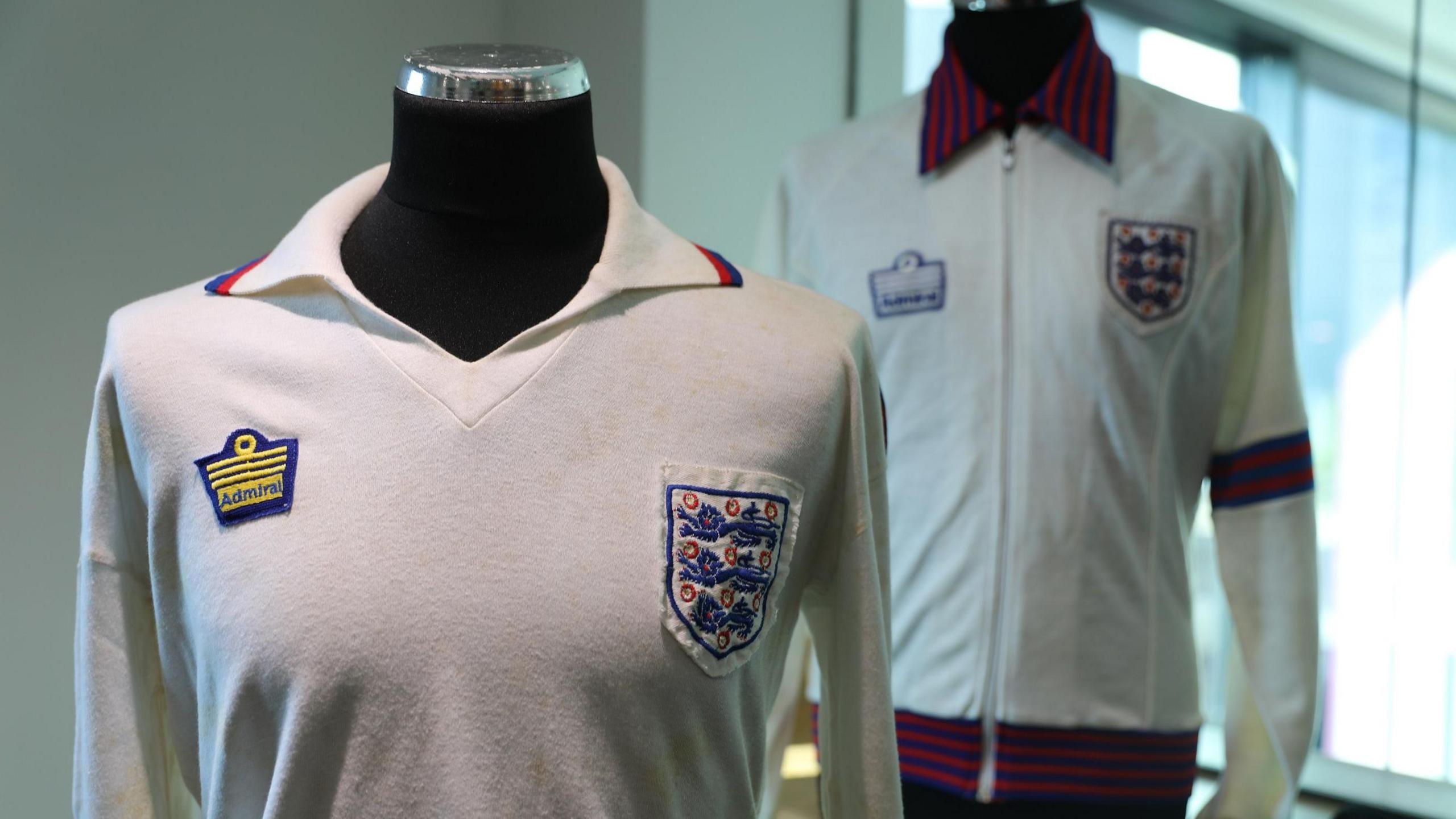
Anderson's debut shirt is estimated to fetch up to £50,000
- Published
In 1978 Viv Anderson became the first black footballer to win a full England cap. With his shirt from that match now set to fetch thousands at auction, he reflects on a career that saw him triumph on some of the biggest stages at a time when terrace racism left deep scars on the game and some of those who played it.
Stained with mud and yellowed from age, its significance may be hard to spot at first.
Complete with Three Lions crest, it is the England jersey worn on a cold November night when 90,000 fans watched full-back Anderson stride out at Wembley against Czechoslovakia and into the history books.
"I got a great ovation," the now 68-year-old recalls. "The crescendo of noise got louder and louder as we made our way to the centre circle.
"Obviously I was very proud and very privileged to be the first."
In all, Anderson would make 30 international appearances across a decade and be part of four World Cup and European Championship squads.
Achieving that landmark call-up did not come easy though.
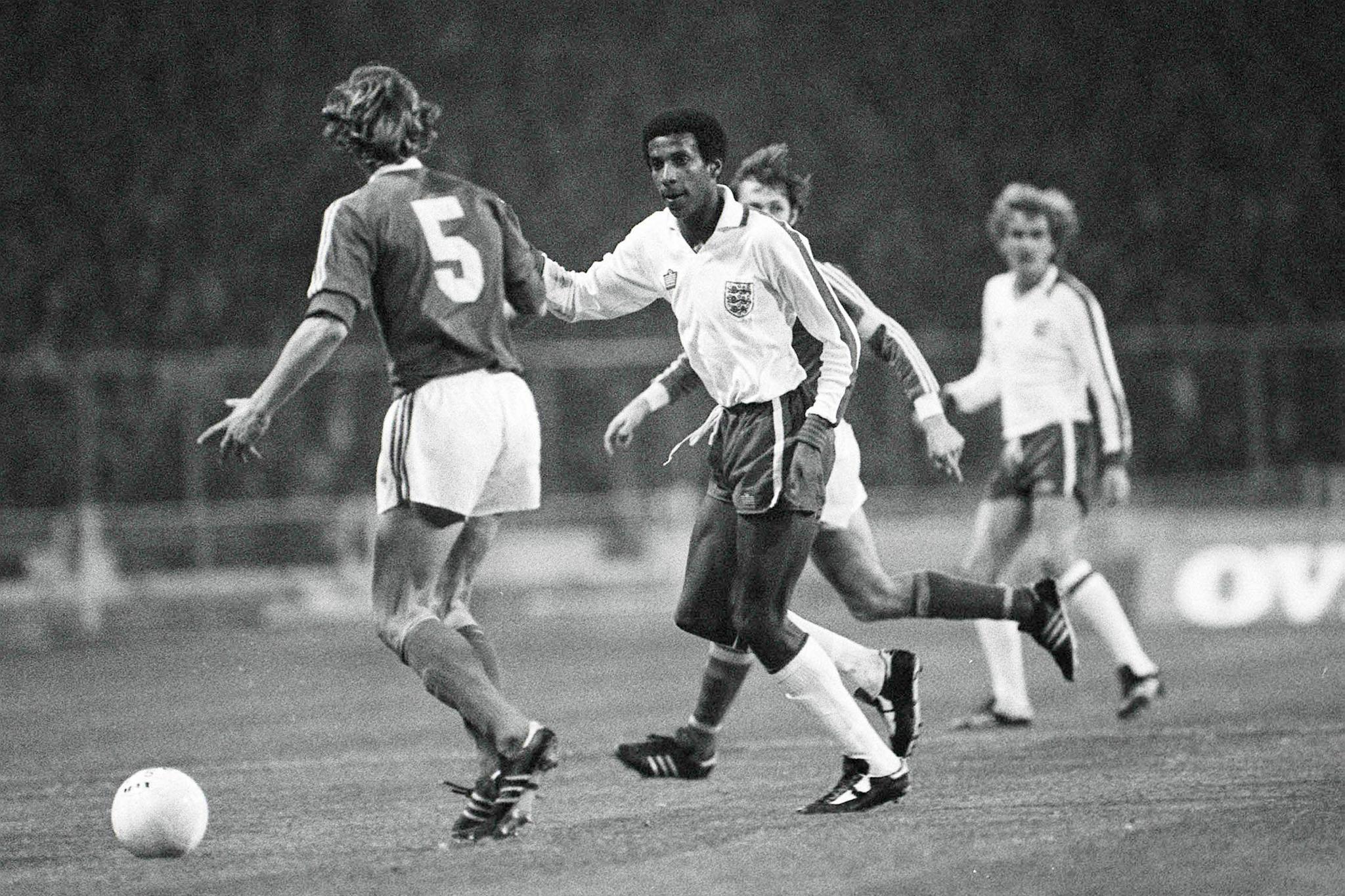
Anderson recalls a deafening roar as he and his teammates made his way on to the pitch against Czechoslovakia
At club level, like other non-white players of the time, he was frequently targeted by supporters.
"We're talking about the 1970s and early 80s. I wouldn't say it was every week that things were thrown at me, but it was a tough time for black footballers.
"It was always more prevalent the further north you went because they didn't see as many black faces as down south.
"It was a part of growing up. Not a nice part, but they were the times.
"What helped me dramatically was having Brian Clough as my manager [at Nottingham Forest]. He said 'you can play, I wouldn't pick you if you couldn't'.
"It was a thing I had to get through to be successful in the teams I was part of."
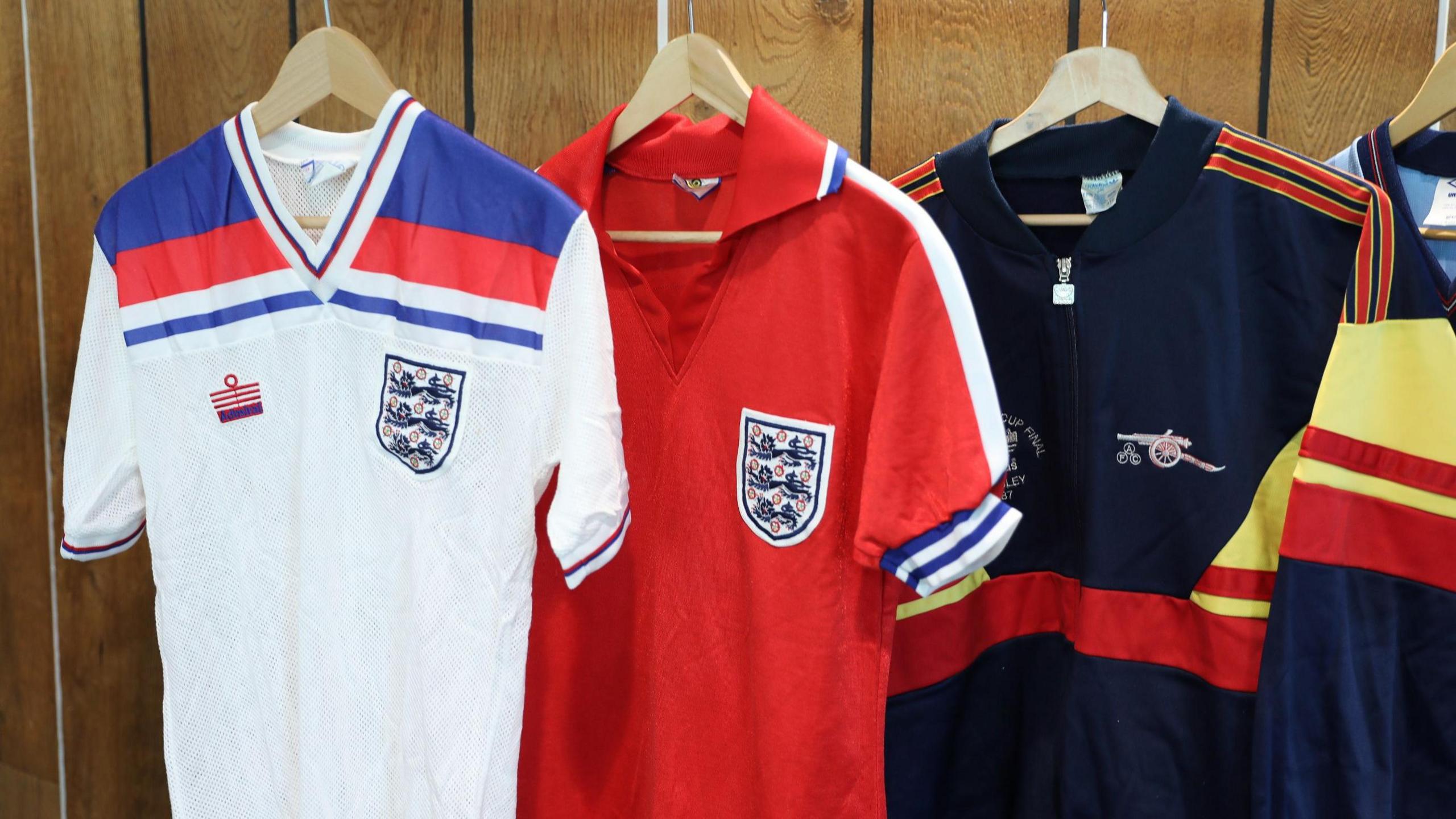
Several of Anderson's other England shirts are listed for sale alongside memorabilia from his club career
Laurie Cunningham, then at West Brom and later of Real Madrid, had been the first black player capped at under-21 level, but it was Anderson who, in his own words, "broke the mould" by making it into the side for a full international.
"There was talk in the papers about whether it was going to be me or Laurie, but there was no rivalry between us at all," he explains.
"It was whoever gets the nod first, good luck to them. It just happened to be me."
In the stands at Wembley that night was Anderson's father, Audley, who had left Jamaica with wife Myrtle in the 1950s, just two of the estimated half a million people waving goodbye to the Caribbean and determined to make a new home in Britain.
He looked on with joy as his son played a key role, involved in the build up to Steve Coppell's match-winning goal.
After a league championship and two European Cup wins at Forest, Anderson's career saw notable spells in the 80s and 90s at Arsenal, Manchester United and Sheffield Wednesday before a year as player-manager at Barnsley and seven more as assistant to Bryan Robson at Middlesbrough.
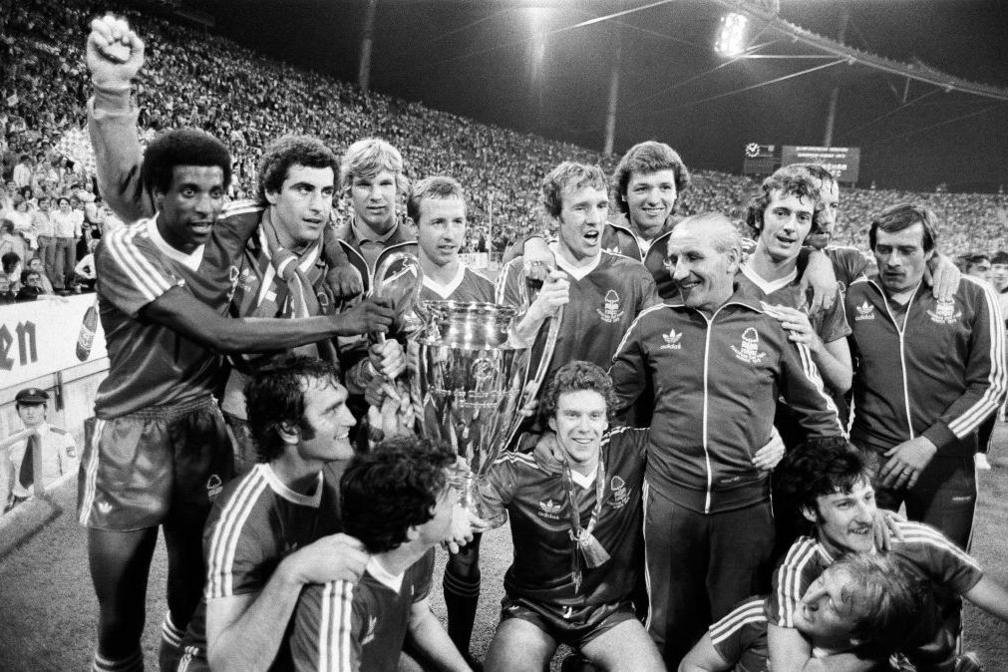
Anderson was a key player in Nottingham Forest's European Cup triumphs
On 1 October, his collection of more than 100 shirts and medals will go up for auction.
With the prices of sporting memorabilia continuing to rise, the haul is estimated to fetch about £150,000, with the number 2 jersey from his debut international valued at up to £50,000 alone.
While that had been on show for several years at Manchester's People's History Museum, most of the other items had been "gathering dust".
"I've got three kids. One's getting married next year, one's 17 and will be wanting a deposit on a house and the other one's 14, so it's really for them," states Anderson, who now lives in Manchester.
"I thought it was the right time. I've moved so many times, they've ended up in boxes in my house and in my ex-wife's house.
"The [debut] shirt was the catalyst. Then I was asked if I had anything else.
"When I went in the garage I found things that haven't seen daylight for 40 years. I might as well make the most of it and let the kids enjoy it."
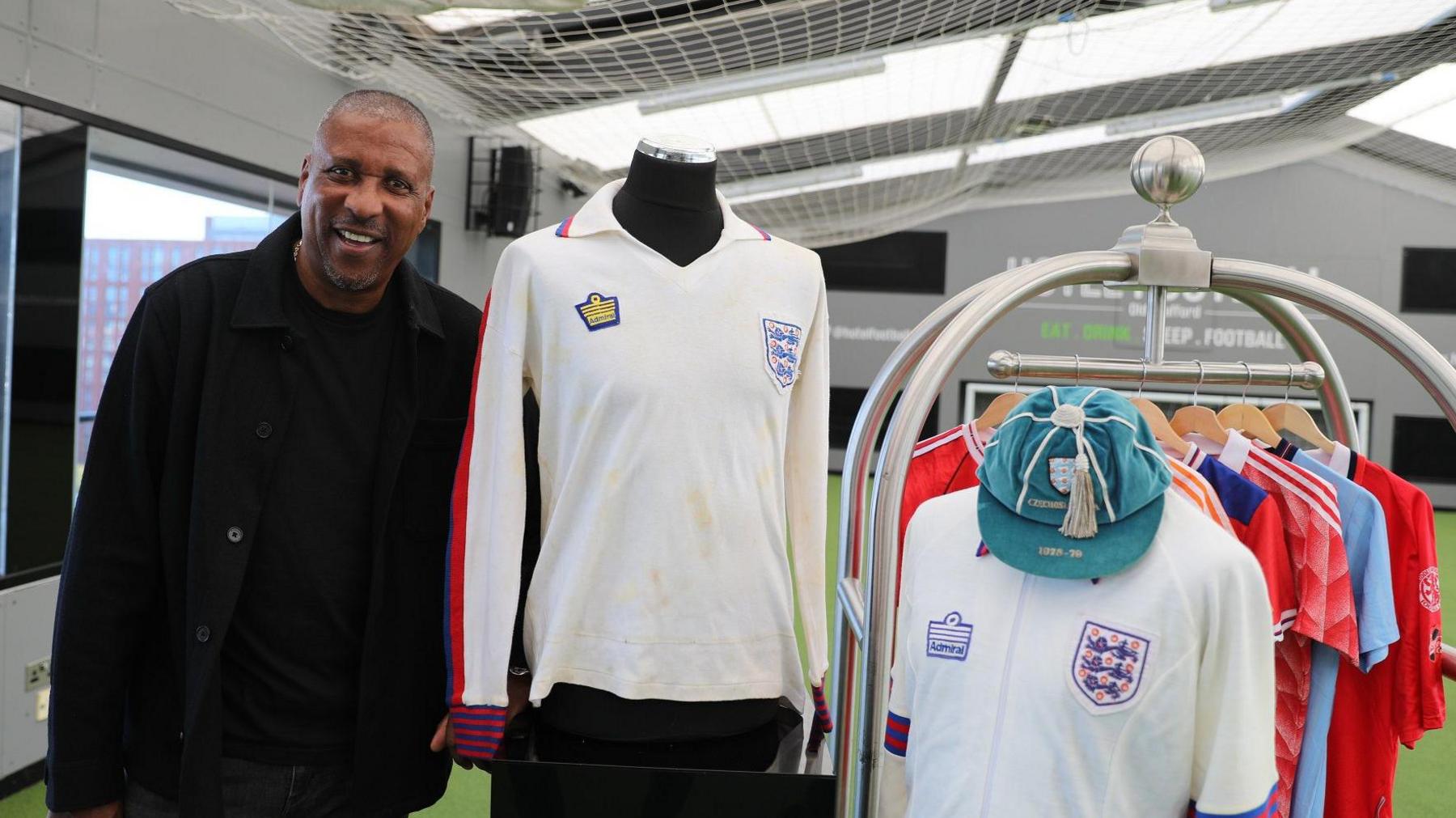
Anderson says proceeds from the sale will provide security for his family
David Convery, of Graham Budd Auctions, says the items' provenance is of particular importance to their value.
"That shirt, cap and tracksuit represent a special moment in English football history.
"It's showing its age, but the fact it's come from Viv himself adds to its appeal."
While Anderson is pleased more than 100 black players have since represented the national side, he is frustrated few make it into the game's managerial ranks or administrative levels.
"There's still a lot to do," he says. "The likes of me, Laurie, Brendon Batson and Cyrille Regis broke the barriers for players.
"There was always a myth black players couldn't play in winter because it was too cold, or they can't do this and can't do that. Now you go up and down the country and there are black faces at probably every club.
"But the management side is completely different and in administration there's only one I can think of who has done it - Les Ferdinand [at QPR].
"I don't know what can be done. You can have a rule to interview black and Asian candidates for every job, but if they're always going to give it to a white person then it's not worth doing."
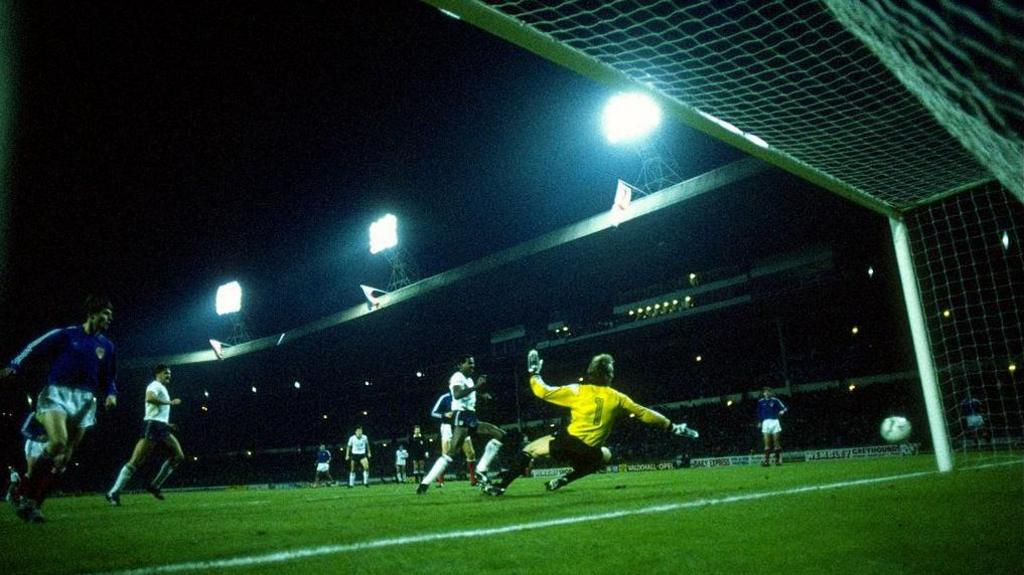
Anderson found the net on two occasions for the national side, including this goal against Yugoslavia in November 1986
Regardless of those issues Anderson's legacy is assured, although he is keen to stress skin colour alone should not define his achievements.
"People say what do you want your epitaph to be. It should be 'he was a good footballer', that's all really.
"The black thing comes up from time to time, but when people talk about that Nottingham Forest team I was part of it's because we were the best in Europe."
Casting one final glance at his shirt, though, he acknowledges he will forever carry the tag of pioneer.
"I have to admit walking out at Wembley [for that first England game] was a great feeling.
"It's a piece of history, which I like, but I don't need physical things to remind me.
"I'll have those memories and experiences as long as I continue in good health."
Related topics
- Published26 April 2023
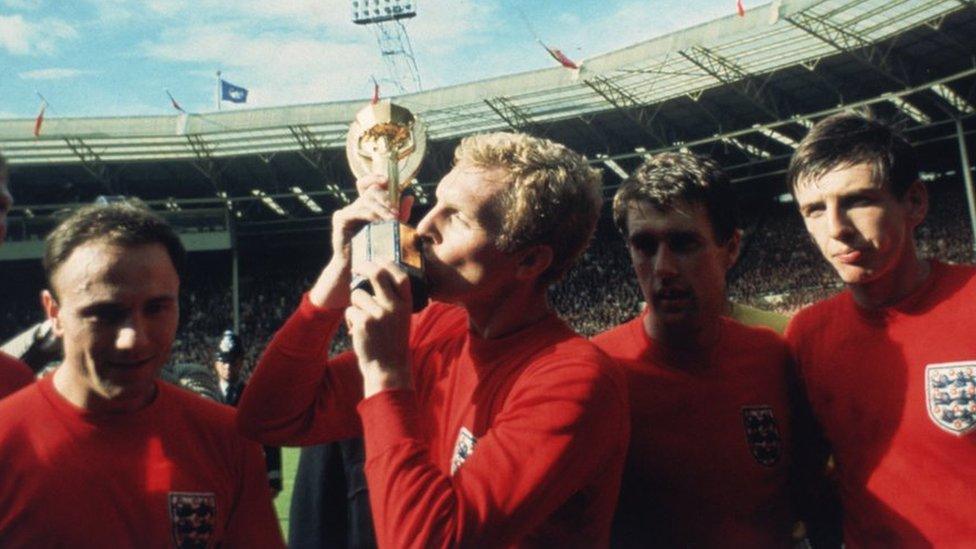
- Published17 December 2022

- Attribution
- Published4 May 2022
